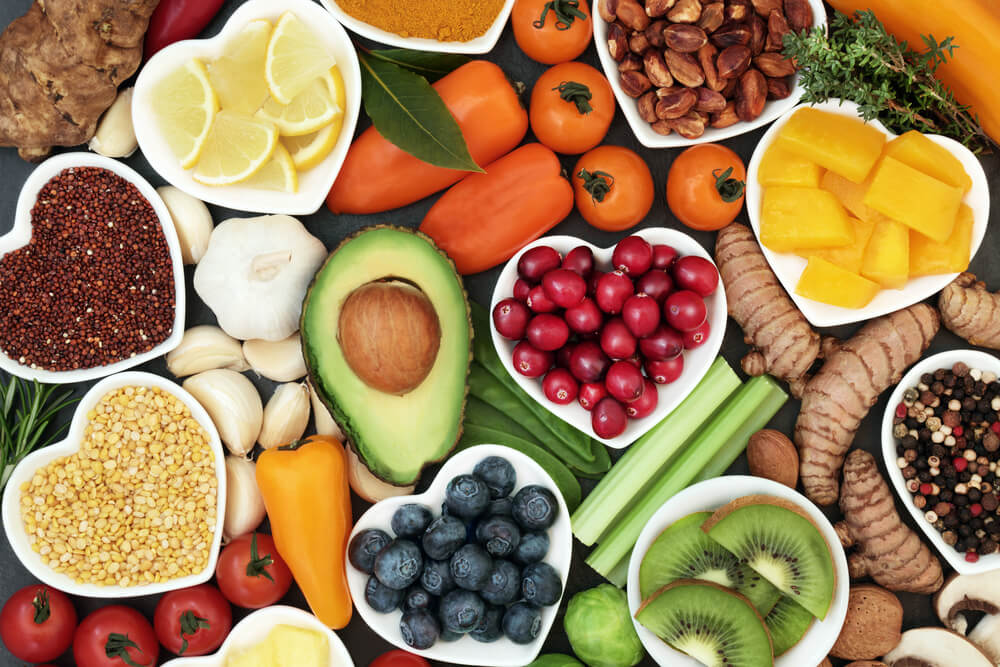



Get new exclusive access to healthcare business reports & breaking news




Your body is powered by what you consume. For this reason, it’s important to provide it with sufficient nutrients that will support its complex functions. Notably, being mindful of your food consumption is vital in sustaining human life.
Nutrients are food compounds essential to health. These are chemical substances that provide you with energy, support growth, and repair tissues. These nutrients are acquired through incorporating a variety of foods into your lifestyle. Hence, it would be ideal to create a meal plan that integrates food from each food group. This is to ensure that you obtain enough nutrients for the maintenance of your bodily systems.


Macronutrients are nutrients that are required in larger amounts. These include protein, carbohydrates, fats, and water. Micronutrients, on the one hand, are nutrients that are required in small doses. They consist of vitamins and minerals. Although the body only needs small amounts of them, it’s important not to overlook. You need to bear in mind that deficiency can cause harm to your health.
Below are the six nutrients your body needs to stay healthy.
Protein is significant from growing muscles to creating new enzymes and hormones. It consists of small building blocks called amino acids. These building blocks turn over faster and reproduce slower as you age.
Protein is garnering all the hype in the fitness community and is here to stay for a good reason. Protein is important for good health. It is primarily maximized for growth, health, and body maintenance.
Animal proteins supply all important amino acids, while plant proteins may be lacking several of these compounds. Thus, to ensure that you’re obtaining the sufficient amount, you need to incorporate a variety of protein-rich foods into your meals. Common examples are eggs, dairy, nuts, and beans.
However, if you’re vegan and want to power up your protein intake, then you may take BCAAs.Not only does it help build stronger muscles, but it also improves your exercise performance and aids in post-workout recovery.
Carbohydrates are significant to the body. They are sugars or starches that sustain energy for all the cells and tissues. Notably, there are two different types of carbohydrates: simple and complex.
The body needs complex carbohydrates for energy management. Likewise, these macronutrients support the immune system, brain activity, and digestive function. Common complex carbs include brown rice, whole grain pasta and bread, oatmeal, quinoa, and fruits and vegetables.
On the other note, you should mindfully limit your consumption of simple carbohydrates. Although they’re naturally present in certain healthy foods, this type of carbohydrate is quick-burning. To explain, simple carbohydrates immediately disintegrate into sugar in your system and may raise blood glucose levels. This may pose problems, particularly to individuals who are at risk for developing diabetes.
Fat is an essential nutrient that stimulates full absorption of vitamins. It provides the body with energy to carry out an array of tasks.
With this, it is essential to eat healthy fats—monounsaturated and polyunsaturated fats. Healthy fats aid in cell growth, blood clotting, and muscle movement, minimize the risk of cardiovascular disease and type 2 diabetes, and a whole lot more. These can be found in nuts, fatty fish, vegetable oils, and seeds, among many others.
Also, you should refrain from eating saturated fats and trans fats. These unhealthy fats raise LDL (bad) cholesterol, which may cause inflammation and other health risks.
Water is a macronutrient in the sense that the body needs it in large amounts. Nonetheless, unlike the other macronutrients, it isn’t comprised of carbon, nor provides energy.
Water is crucial in your body systems’ maintenance. It enhances your mood and brain activity. It acts as a buffer and a lubricant in the body. Likewise, water flushes out toxins, delivers nutrients to the cells, and prevents constipation.
The amount of water that you need is influenced by a variety of factors, such as your diet, your daily activities, the climate in your area, the current season, and the likes. For adults, the general recommendation from The U.S. National Academies of Sciences, Engineering, and Medicine is about:
Vitamins are natural compounds that are required in small doses. These are categorized into two groups: water-soluble vitamins and fat-soluble vitamins.
You need to take note that the body can’t store water-soluble vitamins. These are quickly excreted through urine, thus, you need to replace them more often compared to fat-soluble vitamins.
Here are the nine water-soluble vitamins:
In contrast, fat-soluble vitamins can be likened to oil in the sense that it doesn’t dissolve in water. These are most abundant in high-fat foods, and are much better absorbed by your bloodstream when paired with fat-rich foods.
There are four fat-soluble vitamins:
Similar to vitamins, minerals aid in supporting the body. They are crucial in maintaining strong bones and teeth, as well as in managing your metabolism. Common minerals include calcium, iron, and zinc.
To elaborate, calcium helps with nerve signal communication, monitoring healthy blood pressure, and muscle contraction and relaxation. Iron assists your red blood cells and hormone production. Zinc supports your immune system and aids in wound healing.
Commonly, these minerals are usually found in seafood, fortified foods, dairy products, nuts, leafy greens, egg yolks, and whole grains.
Food is the source of all of your needed fuel. To stay healthy, you must regularly consume a balanced diet to acquire essential nutrients. It’s good to know that majority of these resources can be availed in local stores and supermarkets.
However, if you’re reducing your food intake to manage your weight, then it would be best to consult a nutritionist before eliminating other food groups. Removing certain foods may result in deficiency and other health problems.